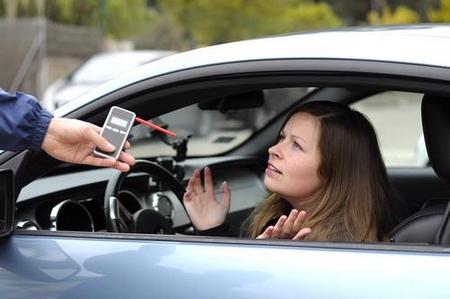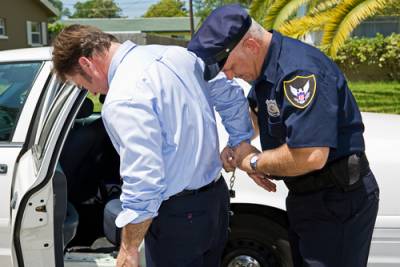

Being charged with any type of violent crime in Illinois can be a scary situation. The uncertainty of the outcome of your case can be a major source of stress for you and your family. Assault and battery are two of the most common violent crimes that occur in Illinois. Depending on the circumstances of the case, you could face a felony charge and many years in prison if convicted. When you are accused of using a weapon during an assault or battery, your penalties often change and become even more serious. The use of a weapon almost always classifies assault and battery charges as aggravated assault or aggravated battery, both of which come with severe criminal consequences.
Assault is a crime that occurs when a person does something that makes another person reasonably believe that he or she will be physically harmed. Typically, basic assault is classified as a Class C misdemeanor. However, when a person uses a firearm or other weapon during the assault, the charge is elevated to aggravated assault.

There are many ways that you could lose your driver's license in Illinois, but by far, the most common way Illinois motorists lose their driving privileges is by being arrested and/or convicted of driving under the influence (DUI) of drugs or alcohol. According to the Illinois Secretary of State, there were more than 26,000 DUI arrests across the state in 2018. Of those arrested, 90 percent of the drivers who were eligible to lose their driving privileges did have their licenses suspended or revoked. It can be frustrating to deal with a driver’s license revocation, but it can be even more frustrating to deal with the criminal consequences of driving while on a suspended or revoked license.

One of the most common questions people ask after they have come into contact with the criminal justice system is whether or not their criminal record can be cleared. Even if you were not actually convicted of a crime, you can have a criminal record if you were arrested or charged with a crime. This record can affect future employment opportunities, housing availability, and other people’s opinion of you. Depending on the circumstances of your case, expunging your criminal record may be an option for you.
Typically, the most favorable method of clearing your criminal record is expungement. If you are able to have your record expunged, your criminal record will be erased, as if it never existed. Because of this, there are certain requirements that your record must meet to qualify for expungement. Entries on a criminal record that qualify for expungement include:

According to the Illinois Secretary of State, more than 26,000 DUI arrests took place across the state in 2018. Drunk driving charges are taken seriously in the state of Illinois, as even a first offense could result in jail time. Being arrested for a DUI can be an intimidating experience because of the uncertainty involved, and it often leaves people with many questions. One of the most common queries people have after their DUI arrest is, “Am I still able to drive?” The answer to this question depends on a variety of factors and how you decide to handle your case. Generally, the answer is yes, with a few considerations that must be made.
If you were arrested because a police officer suspected that you were driving under the influence, you will most likely face both administrative and criminal penalties. Administrative penalties are different from criminal penalties and can run concurrently and be administered without being convicted of a crime. A DUI arrest typically results in an administrative driver’s license suspension, referred to as a statutory summary suspension.
 In this day and age of ever-evolving electronics, credit card fraud is becoming increasingly more common. According to the Federal Trade Commission (FTC), there were more than 133,000 reports of credit card fraud across the United States in 2017. Illinois was ranked as one of the states with the most instances of this crime, with 48 complaints out of every 100,000 residents. Though it is not usually a violent offense, credit card fraud can be damaging to the victim, as it is often related to identity theft. If you have been accused of credit card fraud in Illinois, it is crucial that you obtain legal counsel as soon as possible.
In this day and age of ever-evolving electronics, credit card fraud is becoming increasingly more common. According to the Federal Trade Commission (FTC), there were more than 133,000 reports of credit card fraud across the United States in 2017. Illinois was ranked as one of the states with the most instances of this crime, with 48 complaints out of every 100,000 residents. Though it is not usually a violent offense, credit card fraud can be damaging to the victim, as it is often related to identity theft. If you have been accused of credit card fraud in Illinois, it is crucial that you obtain legal counsel as soon as possible.
There are many different types of offenses that fall under the umbrella of credit card fraud. If you are charged with any of the following crimes, the penalties could be severe:
 We all remember when we were teenagers, and in many cases, we did not make the best decisions, which may have gotten us into trouble. As a parent, you can relate to the feeling of being a juvenile, but hearing that your child has run into trouble with the law can be especially concerning. Unfortunately, teens getting into legal trouble is not uncommon. According to the Office of Juvenile Justice and Delinquency Prevention (OJJDP), more than 728,000 juveniles were arrested for various crimes in 2018. One of the goals of the juvenile justice system is to help kids get on the right path in life, rather than punishing them for making mistakes. With this in mind, youth diversion programs have become a popular part of juvenile sentencing throughout Illinois and the United States.
We all remember when we were teenagers, and in many cases, we did not make the best decisions, which may have gotten us into trouble. As a parent, you can relate to the feeling of being a juvenile, but hearing that your child has run into trouble with the law can be especially concerning. Unfortunately, teens getting into legal trouble is not uncommon. According to the Office of Juvenile Justice and Delinquency Prevention (OJJDP), more than 728,000 juveniles were arrested for various crimes in 2018. One of the goals of the juvenile justice system is to help kids get on the right path in life, rather than punishing them for making mistakes. With this in mind, youth diversion programs have become a popular part of juvenile sentencing throughout Illinois and the United States.
One of the main purposes of having a juvenile participate in a diversion program is to avoid putting him or her through the traditional criminal justice system for a minor offense. Youth diversion programs vary in how they operate and are structured, but the essential goal is to provide an intensive and holistic approach to address delinquent behavior. In many situations, the adolescent's family will be included in the diversion program to help encourage their child to reform. Typical services in youth diversion programs can include:
 Being pulled over by a police officer for any reason can be an anxiety-inducing situation. The scenario can be even scarier if you are under suspicion of drunk driving, especially considering how strict the Illinois DUI laws can be. Police officers are trained to recognize the signs of impairment and will be looking for them in every traffic stop. If an officer suspects that you might be intoxicated or under the influence, he or she may ask you to submit to field sobriety testing and/or a preliminary breathalyzer test. While it is not a crime to refuse to submit, choosing not to cooperate can lead to additional consequences.
Being pulled over by a police officer for any reason can be an anxiety-inducing situation. The scenario can be even scarier if you are under suspicion of drunk driving, especially considering how strict the Illinois DUI laws can be. Police officers are trained to recognize the signs of impairment and will be looking for them in every traffic stop. If an officer suspects that you might be intoxicated or under the influence, he or she may ask you to submit to field sobriety testing and/or a preliminary breathalyzer test. While it is not a crime to refuse to submit, choosing not to cooperate can lead to additional consequences.
You may know about or have heard of the term “implied consent.” This refers to the idea that every person who has a driver’s license in Illinois has implicitly agreed to submit to chemical testing of their breath, blood, or urine to determine the amount of a specific drug or alcohol in their system, and refusing to comply with this testing can result in automatic driver's license suspension. What some people may not know, however, is that the implied consent law only comes into play after you have been arrested for DUI. In other words, refusing to take a roadside breathalyzer test will not result in the automatic suspension of your license.
 Being accused of committing a violent crime in Illinois is a very serious matter to deal with. Specific crimes of this nature can be considered to be domestic if they are committed against certain individuals. Domestic violence can often be difficult to detect, because many victims may be too scared to come forward. When accusations are made, however, they are taken very seriously, and they can lead to harsh punishments. This is why it is important to take immediate action if you are accused of committing a domestic crime.
Being accused of committing a violent crime in Illinois is a very serious matter to deal with. Specific crimes of this nature can be considered to be domestic if they are committed against certain individuals. Domestic violence can often be difficult to detect, because many victims may be too scared to come forward. When accusations are made, however, they are taken very seriously, and they can lead to harsh punishments. This is why it is important to take immediate action if you are accused of committing a domestic crime.
Technically, battery and domestic battery are two different crimes in Illinois. For a battery crime to be considered domestic battery, the crime must have been perpetrated against a family or household member. The state of Illinois defines family or household members as people who have a certain relationship, including:
 There has always been some sort of tension between the general public and authority figures in the United States. The perception of law enforcement can quickly change when events such as police shootings take place or reports of police officer negligence are made available to the public. While an encounter with a police officer can be stressful and anxiety-inducing, it is important for you to know your rights in these situations. Improper actions could result in serious criminal charges, such as resisting arrest or noncooperation. Listed below are a few important facts you should know about interacting with the police:
There has always been some sort of tension between the general public and authority figures in the United States. The perception of law enforcement can quickly change when events such as police shootings take place or reports of police officer negligence are made available to the public. While an encounter with a police officer can be stressful and anxiety-inducing, it is important for you to know your rights in these situations. Improper actions could result in serious criminal charges, such as resisting arrest or noncooperation. Listed below are a few important facts you should know about interacting with the police:

Not all traffic tickets are created equally. While some traffic violations may only result in a monetary fine, others can result in much more severe consequences and even criminal penalties. All traffic offenses are serious, but some traffic violations can become even more consequential depending on the location. According to the Illinois Road and Transportation Builders Association (IRTBA), in 2017, there were a total of 5,423 work zone motor vehicle crashes, resulting in 1,435 injuries and 30 fatalities, many of which were caused by speeding drivers. In Illinois, construction zones are one of those locations in which you could face criminal penalties for actions that would be considered minor violations in other places.
 A lawyer’s time and advice are his stock and trade.
A lawyer’s time and advice are his stock and trade.